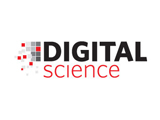
Laura Wheeler, Community Manager at Digital Science will be hosting our first webinar, “Best Practices in Research Object Management”. Dan Valen, Product Specialist for Figshare, will be questioning and moderating the panel consisting of: Mark Hahnel, Figshare founder, Angus Whyte, Senior Institutional Support Officer at the Digital Curation Centre and Jon Tennant, PhD student at Imperial College London.
The webinar will be taking place on Tuesday, May 5th, 11am EDT / 4pm BST. If you wish to tweet about the webinar the hashtag to use will be #DSwebinar.
Managing all the outputs of the research process at your institution opens up many opportunities for data sharing and reuse. The emergence of open data, and the increase in mandates from funders and policymakers to make it so, is driving tremendous interest in establishing infrastructures that allow researchers to control data on their terms, while affording benefits to the institution in terms of curation and retention, and the visibility of research outputs.
The Digital Curation Center in the United Kingdom has already built up a wealth of experience in understanding how best to support researchers in the management and publication of data. Mandates from funders such as HEFCE, the Wellcome Trust and the Engineering & Physical Sciences Research Council (EPSRC) are putting the onus on institutions to provide appropriate tools and platforms to enable their researchers to manage their data in line with funder and institutional expectations. Angus will describe the DCC’s experience in helping UK institutions meet funder expectations and this will include guidance on:
- Benchmarking and costing the service,
- Delivering help at key points in the research cycle,
- Data management planning,
- Selecting research data for deposition,
- Sescribing it for citation purposes.
Mark Hahnel will discuss how some UK institutions have responded to funder mandates for open data, by putting a cloud-based open repository in place with control functionality such as publication embargoes and approval steps. Mark will also discuss the progress that has been made in Australia and New Zealand and he will speak to the many opportunities US institutions have to maximise the value of their data, by responding positively to directives from funders to make data openly available.
Jon Tennant will offer a researcher’s perspective on the challenges surrounding managing and showcasing research data that is relatively small in size and in common formats. Jon will discuss some of the benefits of open data at the level of a researcher, as well as the importance and potential pitfalls of community-driven open data initiatives.
REGISTER FOR THIS WEBINAR



























